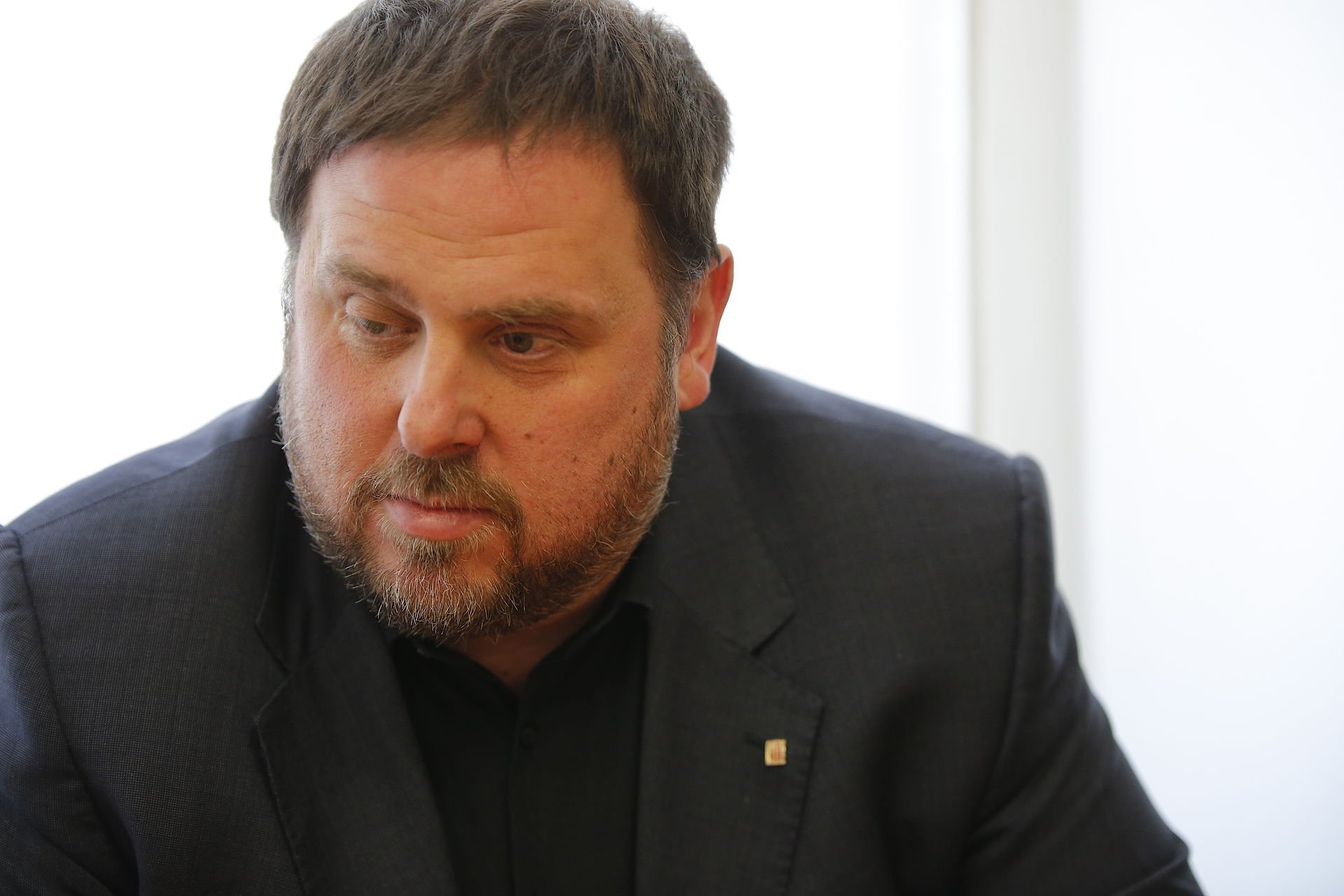Oriol Junqueras has told Catalunya Ràdio, in an interview by letter, that this Tuesday when he attends the Catalan Parliament's commission on the application of article 155 of the Constitution, he'll be expectant see how the politicians who have argued in favour of his imprisonment and conviction "maintain their eye contact". "They know that they have been complicit in this injustice, because we've been imprisoned for more than two years for crimes we haven't committed, for having held a referendum."
The former Catalan vice president believes that the anomaly is not that they have been authorised to leave prison to appear before Parliament, but rather, their imprisonment itself is anomalous. "We often make mistakes on where we should apply pressure and point the finger, but we can't lose sight of the fact that we are in prison because the state has decided to set in action a mechanism for revenge."
Oriol Junqueras and fellow political prisoners and former colleagues in the 2017 Catalan government Jordi Turull, Raül Romeva, Joaquim Forn, Josep Rull and Dolors Bassa also told Catalunya Ràdio what they plan to talk about on Tuesday. All six of them will be personally present to address the parliamentary commission investigating the effects of the Spanish government's suspension of Catalan autonomy, under article 155, after the 2017 independence referendum.
The jailed politicians all agree that the application of 155 disrupted the operation of the Catalan administration and the services it provided, and set a precedent for issues "which are now occurring and scaring democrats", according to Turull. For Forn, it was "one of the gravest episodes in the history of Catalonia" due to the suspension of self government; Bassa emphasizes that it "delayed many projects" and caused "payment problems". Romeva also claims that his department, that of foreign affairs, was "an obsession" of the Spanish government, so "it was the worst affected and the most fully dismantled of all due to 155".
Junqueras underlines that Madrid's takeover of the Catalan government "meant a sudden halt" to the roll-out of laws and assistance schemes that had been put in place. For that reason, he wants to use his session before the commission to "talk about the state's repression and all the violations of rights that have been taking place since before 1st October 2017 and [continue] to this day."

